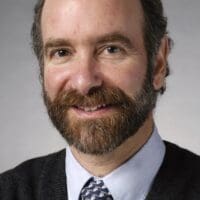Jonathan Patz, MD, MPH, is a Professor & Director of Global Environmental Health at the University of Wisconsin in Madison. He Co-chaired the health expert panel of the US National Assessment on Climate Change and was a Convening Lead Author for the United Nations/World Bank Millennium Ecosystem Assessment. For the past 15 years, Dr. Patz has been a lead author for the United Nations Intergovernmental Panel on Climate Change (or IPCC) – the organization that shared the 2007 Nobel Peace Prize with Al Gore. He is President of the International Association for Ecology and Health and co-editor of the association's journal EcoHealth. He has written over 90 peer-reviewed papers and a textbook addressing the health effects of global environmental change. He has been invited to brief both houses of Congress, served on several scientific committees of the National Academy of Sciences, and currently serves on science advisory boards for both CDC and EPA. In addition to his sharing in the 2007 Nobel Prize, Dr. Patz received an Aldo Leopold Leadership Fellows Award in 2005, shared the Zayed International Prize for the Environment in 2006, and earned the distinction of becoming a UW-Madison Romnes Faculty Fellow in 2009. He has earned medical board certification in both Occupational/Environmental Medicine and Family Medicine and received his medical degree from Case Western Reserve University (1987) and his Master of Public Health degree (1992) from Johns Hopkins University.


